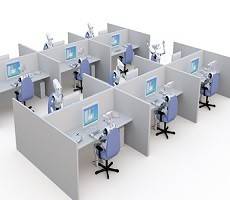January 28, 2015
Digital revolution continues to transform the way we work
 The full extent of the way digital technology is transforming British working life is apparent in new research published by Brunel University. The study – essentially a snapshot of the digital revolution in 2015 – found that 98 percent of the 830 businesses surveyed have a website, 8 in 10 manage finances online, 53 percent provide flexible working and 63 percent see innovation as a way to improve customer satisfaction. However, the study also reveals a major gulf between big business and SMEs, with larger firms significantly more digitised than their smaller contemporaries. This raises concerns over the preparedness of the SME sector at a time when the Government’s growth agenda has prioritised nurturing and supporting new and evolving enterprises – and for whom the digital battleground has broken down traditional barriers to entry.
The full extent of the way digital technology is transforming British working life is apparent in new research published by Brunel University. The study – essentially a snapshot of the digital revolution in 2015 – found that 98 percent of the 830 businesses surveyed have a website, 8 in 10 manage finances online, 53 percent provide flexible working and 63 percent see innovation as a way to improve customer satisfaction. However, the study also reveals a major gulf between big business and SMEs, with larger firms significantly more digitised than their smaller contemporaries. This raises concerns over the preparedness of the SME sector at a time when the Government’s growth agenda has prioritised nurturing and supporting new and evolving enterprises – and for whom the digital battleground has broken down traditional barriers to entry.






















January 28, 2015
How well designed office hives can foster swarm intelligence
by Lee Parsons • Comment, Facilities management, Workplace design
(more…)